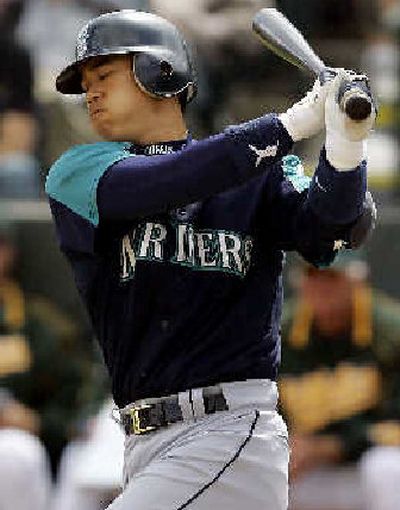M’s think Johjima will catch on

Catching wasn’t the Seattle Mariners’ greatest need for 2006, but after what they experienced behind the plate last year, it couldn’t be an afterthought, either.
The Mariners used seven different catchers in 2005 and went into the off-season longing for the stability behind the plate that Dan Wilson gave them for so many years.
Wilson, the Mariners’ last connection with their first division championship in 1995, is retired now. In his place, the team believes Kenji Johjima will solidify the position and become a leader of the pitching staff. His challenge is immense.
Johjima played 11 years for the Fukuoka Softbank Hawks of Japan’s Pacific League and, after signing a three-year, $16.5 million contract with the Mariners, will become the first Japanese catcher to play in the major leagues.
He’s a career .299 hitter who hit 36 home runs for Fukuoka in 2004. He also won seven Gold Gloves and led the league in caught-stealing percentage four straight years.
How will Johjima’s game in Japan translate in the major leagues?
Despite the Gold Gloves, scouts and major league catching experts say Johjima must make some significant adjustments in how he receives, blocks, throws and calls a game in order to become a standout catcher in the U.S.
Johjima has devoted considerable hours not only getting his body ready for his first major league season, but also his mind. At spring training, he often was one of the first to arrive in the clubhouse and the last to leave.
“This kid is dying to succeed,” said Roger Hansen, the Mariners’ minor league catching coordinator who worked in Japan from 1998-2001 as a roaving instructor for the Orix Blue Wave. “He wants to block balls, he wants to throw, he wants to work because it drives him insane not to.
“That’s the way they are in Japan.”
Here are some of the major issues he’ll face:
Communication
It’s definitely a factor but, according to manager Mike Hargrove and the pitchers who have worked with Johjima this spring, it’s not a concern. Johjima understands baseball, and he has been taking English lessons since he signed in November.
Throwing
Johjima doesn’t throw absolute rockets to second base, but he has an extremely quick release.
Calling pitches
The Japanese go to more breaking balls in fastball counts, and vice-versa, than major leaguers. Johjima must make that adjustment, but so far it has been smooth.
Japanese catchers take tremendous responsibility for a pitcher’s performance, so much that, “over there, it’s the catcher who gets taken out of the game, not the pitcher,” Hansen said. “It’s taken extremely seriously.”